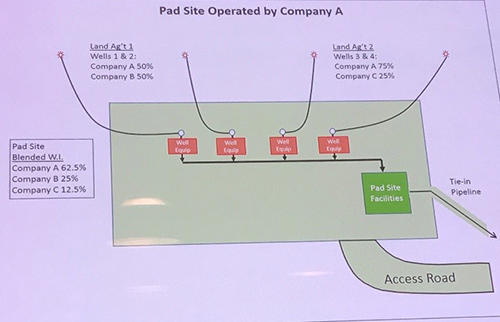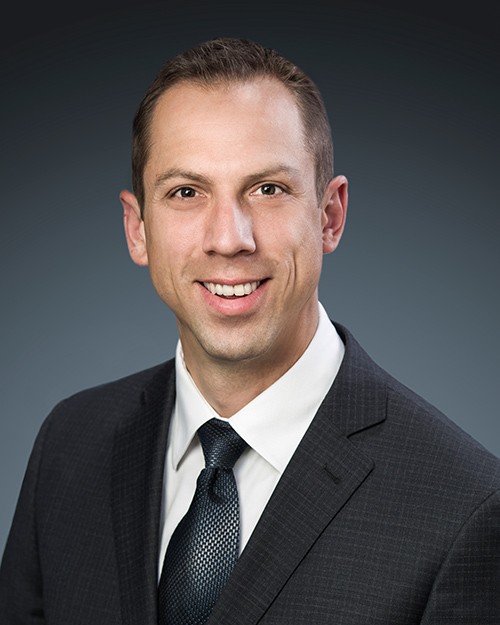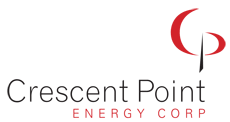
October 2018
October LuncheonPJVA-CAPL Pad Site Sharing Agreement
24th Annual GPAC/PJVA Joint Conference
Call for Volunteers – JV Certificate Program
November Joint Luncheon with PASC
Who’s On Board?
Headline - The Eagle Spirit Energy Corridor- an Energy project that already has the approval of 35 First Nations.
Ottawa orders National Energy Board to redo review of Trans Mountain pipeline within 22 weeks
Consider a Corporate Sponsorship with PJVA?
October Luncheon
"Leveling the Playing Field - A Discussion of USMCA/NAFTA Resolutions and the Impact of US Tax and Regulatory Reform on Canadian Competitiveness"
In the current trade battles, the US looks to use all possible sources of leverage to negotiate trade deals with countries in key markets around the world. Canada, meanwhile, has relied heavily on free trade agreements to increase market access for Canadian exporters.
NAFTA negotiations stalled as the US pressured Canada to join their new deal with Mexico. USMCA developments are of particular interest to Canadian Producers and Midstreamers as the US is both our biggest customer and our biggest competitor. Our October luncheon is a detailed discussion of USMCA Issues, Disputes, and the Interim Trade and Tariff wars with speakers with Legal Arbitration and Strategic Business Development insights.
Speakers:


Mr. David McLellan is a Principal at Ridgeway Strategic Consulting Ltd. Woodlands, Texas and Mr. Romeo Rohas, Associate at Bennett Jones, whose practice is focused on domestic and international commercial arbitration and investor-state arbitration.
In the current trade battles, the US looks to use all possible sources of leverage to negotiate trade deals with countries in key markets around the world. Canada, meanwhile, has relied heavily on free trade agreements to increase market access for Canadian exporters.
Event: |
October Luncheon |
Date: |
Thursday, October 18, 2018 |
Time: |
11:30 am – 1:00 pm |
Location: |
The Calgary Petroleum Club 319 - 5 Avenue SW Devonian Room |
Registration: |
Sponsored by:


Maureen McCall
PJVA Director- Programs-Luncheons
PJVA-CAPL Pad Site Sharing Agreement
The 2018 PJVA-CAPL Pad Site Sharing Agreement: The Transition To Use Begins Michael Bruch, Lorraine Grant and Jim MacLean
The 2018 PJVA-CAPL Pad Site Sharing Agreement (“PSSA”) was endorsed in early September by the boards of PJVA and CAPL and made available to industry on September 25th through a web enabled distribution on the PJVA and CAPL websites. In conjunction with the release of the document, the PJVA and CAPL hosted an overview presentation on the PSSA that day for over 200 JV, Land and Accounting attendees from a wide range of companies, and the feedback from that session was very positive.
Materials made available on the websites include clean and redline versions of the annotated document, the presentation package used at the industry rollout, additional background materials to assist in the transition to use of the PSSA and a verbatim list of each comment received on the third draft and our responses to each of those comments.
Prior articles in the CAPLA NEXUS (“PJVA-CAPL Pad Site Sharing Agreement: Doing Nothing Is Not An Option”, September, 2016) and the CAPL Negotiator (October, 2016, “To Share Or Not To Share - That Is The Question”) provided an introduction to the document and an overview of the circumstances in which the PSSA is and is not recommended for use. The December, 2017 CAPL Negotiator article (“Coming Soon To A Pad Site Near You-The 2017 PJVA-CAPL Pad Site Sharing Agreement”) offered additional insights about the context for the project, the overall structure of the PSSA and the key principles of the PSSA. Those articles provide a very helpful grounding for those unfamiliar with the PSSA who require an introduction to the document, and we recommend that you review them in conjunction with your organizational review of the PSSA.
The creation of the joint task force by the PJVA and CAPL and the collaboration over the course of the project reflected the belief that an industry model agreement was required to address the issues associated with the construction and ongoing management of multi-interest pad sharing arrangements in the context of the typical shared well pad and the related facilities.
What The PSSA Does
This PSSA is designed to be used for those situations in which a well pad will have a blended DOI resulting from wells that are drilled pursuant to more than one contract or a mix of a land contract and 100% rights. The PSSA is intended to address the gaps that are not covered with respect to the well pad and shared facilities.
The Task Force believes that the underlying land agreements do not adequately address the issues in these situations. There are significant gaps in terms of such matters as: (i) the interrelationship to existing mineral land agreements and rights; (ii) the ongoing management of shared facilities, particularly if also being used to handle production from other nearby wells; (iii) compliance with regulatory “prime contractor” requirements; (iv) modifications to interests over time and the associated financial adjustments; (v) any permitted use restrictions; (vi) adequate liability and indemnity protections with respect to activities conducted anywhere on the shared pad site; and (vii) the mitigation of the risk of a “last man standing” outcome as the well pad is abandoned in due course.
The Task Force concluded that a surface focused Joint Use or Surface Sharing Agreement can address some of the issues, but determined that these agreements did not suitably address construction and ongoing management of the shared facilities, changes in interest over time and the associated financial adjustments, cross indemnities, insurance, “prime contractor” requirements and the staged abandonment of the shared pad site in due course.
The number of shared well pads without agreements is growing exponentially, and the absence of agreements governing those relationships creates significant uncertainty and significant risk for owners with respect to a wide range of issues.
The nature of that uncertainty and the real risks inherent in an undocumented pad sharing arrangement are such that the conclusion of the Task Force was that doing nothing was not an option.
Doing nothing, in fact, was a voluntary choice by the owners’ applicable personnel to assume risk.
The “80% Solution” Design Approach
As industry would be unfamiliar with this form of agreement, we chose to design the PSSA around the most typical shared pad site situations. These involved somewhere between two to six anticipated wells, a single Site Operator and expenditures for the construction of the shared pad site, the related road and the installation of minor facilities that would be quite modest relative to the investments in the wells located on the shared pad site. While the PSSA is designed to accommodate more complex situations, we chose not to include layers of additional complex content that would be used only on an exception basis because of our belief that this would compromise industry’s willingness to consider using the PSSA.
We sometimes refer to an “80% solution” when describing these design parameters for the PSSA. As is the case with the other major CAPL documents, however, the PSSA provides a breadth and depth of coverage that addresses reasonably foreseeable issues in a way that is logical and reasonably complete for the most typical situations.
We believe that the PSSA will work very well for over 80% of circumstances in practice as a result. While the onus is on users to customize their PSSA to address any special needs or preferences, the PSSA will still otherwise offer a good foundation for most aspects of their pad sharing arrangement.
What Happens Next?
With the completion of the PSSA, the focus now shifts to the “after care” phase of the project.
The September 25th rollout presentation was a key milestone in that regard. It offered a unique opportunity to increase awareness and engagement by unveiling the project to many who had previously not been familiar with the project and by providing them with a frame through which to begin to examine the PSSA materials in more detail.
The web enabled distribution of the PSSA materials directly to the PJVA and CAPL memberships and, indirectly, to CAPLA and PASC members provided wide access to the September 25th presentation materials, as well as to the annotated PSSA and other background materials.
In this regard, the extensive annotations included in the Head Document, the PSSA Operating Procedure, the Addendum to the Operating Procedure and the six Appendices were designed as a key support tool to assist users with both the transition to use and their ongoing work with the PSSA.
There were three reasons for including such detailed annotations in the PSSA. The first was that extensive annotations are required to optimize industry’s transition to a new form of agreement that is so different in some ways from both the PJVA CO&O Agreement and the CAPL Operating Procedure. The second is that the integration of both JV and Land concepts in the PSSA requires JV personnel to become more familiar with Land concepts and for Land personnel to become more familiar with JV concepts. The third is that the ongoing loss of experienced personnel from our industry is such that we wanted to create a document that would allow users of all experience levels to optimize their understanding of the document and to position them more fully to resolve potential issues independently as situations arose.
The PJVA and CAPL have also initiated discussions on the provision of training by their respective Associations using common training materials, so watch for an upcoming announcement.
Another key component of the project “after care”, of course, is hearing from you about your experiences as you assess the PSSA for potential use by your organization. We want to know what is working well, what is not as clear as you would prefer and what might otherwise be of concern. In this regard, our vision is to create a frequently asked questions process that we can use to assist in the transition to use insofar as the annotations do not provide sufficient insight on the potential concern.
Thanks For Your Interest And Support!
On behalf of our Task Force, we want to express our gratitude to the companies and individuals who have shown interest in the project and provided comments during the drafting process. The vast majority of the comments we received were addressed in the document in some form, and the document is much better than it otherwise would have been as a consequence.
The feedback obtained from those of you who have already used drafts of the PSSA in some of your real life shared pad site arrangements was also extremely valuable. Those “road tests” identified a few areas in which adjustments were required, while confirming our belief about the overall integrity of the document for application to actual pad site sharing arrangements.
We are also appreciative of the support of CAPLA and PASC over the course of the project through speaking opportunities, the distribution of materials to their respective memberships and the participation of some members of those Associations on the Task Force.
Last, but certainly not least, we also thank the PJVA and CAPL Boards for their ongoing support over the course of the project and their willingness to collaborate on the creation of the PSSA as what was truly a joint initiative to address a very real and growing industry need.

We are pleased to advise you that the new PJVA-CAPL Pad Site Sharing Agreement (PSSA) was rolled out on September 25, 2018 to over 210 PJVA/CAPL members and others, and that the materials associated with the PSSA are now available on the PJVA website here.
To use the PSSA, you may order online from PJVA - the Word documents together with the annotated PDF document. The documents will be until October 25th at no extra charge.
24th Annual GPAC/PJVA Joint Conference
The 24th Annual GPAC/PJVA Joint Conference will be held on Tuesday, October 30th at the Calgary Petroleum Club. We are very pleased with the variety of speakers confirmed for this year’s conference. The conference schedule has been updated since the previous newsletter. Our morning keynote will be Doug Schweitzer from the United Conservative Party (UCP) of Alberta. Doug will give his perspective on the current state of Alberta’s economy and how energy policies would change under a UCP government. Our lunch keynote speaker will be Dennis McConaghy, author and former senior executive of TransCanada Pipelines. Dennis will provide his thoughts on pipelines, carbon, oil prices and the outlook for Alberta's future.
There is still plenty of time to register for the conference. Individuals may register for $400, and corporate tables (8 people) are available for $2600. All attendees will be provided with breakfast, coffee break snacks, lunch, and drink tickets (for the reception after our last presentation). The conference, as always, strives to provide attendees with educational and networking opportunities. Please join us to hear engaging presentations from experts in climate policy, energy markets, drone surveying, oil and gas digitization, mergers and acquisitions, forensic accounting, and export terminals.
Additional information on sponsorship opportunities, registration, or other conference details is available from Conference Director Brad Hodges (bradleyhodges9513@gmail.com). You will also find information on the conference web site http://www.jointconference.ca/
Brad Hodges
Conference Director
Call for Volunteers – JV Certificate Program
JV Certificate Program Material Reviewers Required!
Volunteers are required for the JV Certificate Program Course to review and update the course materials as follows:
| Volunteer Position: | JV Certificate Program Course Material Reviewers |
| Details: |
Volunteers are required for the JV Certificate Program Course to review and update the course materials as follows:
|
| Amount of time required: | 6 month commitment – October, 2018 through to March, 2019 Time per week: 2 – 5 hours/week, varying based on work required and committee members available |
| Experience: |
Committee member:
|
| Delivery skill set: |
Ideal candidates for this role exhibit some or all of the following skills:
ALL interested PJVA members are welcomed to submit their names for either of these roles – your unique combination of experience, background, and skills might be exactly what is needed for the ongoing development of our course materials. |
| Date Posted: | September 21, 2018 |
There is a 6 month commitment required for these positions – October, 2018 through March, 2019. At approximately 2 – 5 hours/week, varying based on work required and committee members available.
ALL interested PJVA members are welcomed to submit their names for either of these roles – your unique combination of experience, background, and skills might be exactly what is needed for the ongoing development of our course materials.
November Joint Luncheon with PASC
New Technology — BOTS, AI, Smart Contracts. Revolutionary or Evolutionary?

New digital technology is receiving much publicity lately promising to improve productivity. As we contemplate technology like Blockchain for the Oil and Gas industry, it's important to have a good understanding of how this new technology can interact with our current systems.
How do we currently digitize contracts and do they already act as smart contracts? How are BOTS and AI already being implemented in our systems and what are the changes to business processes? Join us for a luncheon presentation by Dave Howden of Reddog Systems - Energy Link-JIBLink on November 15th at The Calgary Petroleum Club from 11:30 am - 1:00 pm.
Sponsored by:


Maureen McCall
PJVA Director- Programs-Luncheons
Who’s On Board?
Kody Carroll
PJVA Treasurer

When did you get involved on the PJVA Board and why?
While I’ve been involved in the PJVA for years, I only got involved with the Board starting this year. I think we’ve all had the sense that the industry is changing, and I felt that it was a great time to get involved at the Board level to keep a finger on the pulse of what’s happening in the industry, but also to try to contribute new ideas and provide feedback on key issues that I’ve heard from various companies throughout the industry.
Tell us about why you like the challenges of the joint venture business?
The Canadian oil and gas industry is a remarkable environment. With our joint ventures, we’re a cluster of businesses that are more like collaborators than competitors where we face the same economic challenges and opportunities on the global stage. We share the same vendors, exploit the same resource plays and often have employees transfer knowledge and ideas between companies that create industry level efficiencies. From preparation of model agreements to training courses and programs that are universally available to all individuals in the industry, the PJVA has a remarkable opportunity to continue to add to the Canadian oil and gas industry efficiencies, affording us a “best practices” Canadian advantage on the international stage. I love the idea of being part of something that can provide an advantage to not just a single company, but to an entire industry.
Tell us about the treasury position you’re responsible for at PJVA and the progress you have made over the last year or two?
Although new to the PJVA board, I’m very excited about the Treasurer position as I’ll have the opportunity to work closely with all the portfolios managers in the PJVA. With such an experienced, diverse group of professionals, it’s clear that this is a group that looks forward to both teaching and learning from each other. I’m excited to bring some of my own knowledge and experience to the table, and similarly look forward to learning from those that have represented this Board for years.
What are your goals for your portfolio in 2018/19?
The PJVA has a brand worth growing, and in the short time that I’ve been with the Board I’ve seen a team more than ready, willing and able to make that happen. Every organization needs a balanced budget and consistent positive cash flow to continue, and I have no doubts that this Board is going to keep building the PJVA in a way that is going to see it remain a successful, relevant organization for years to come.
Best advice you ever received?
There’s no perfect formula for success but with integrity, hard work and tenacity, you’re off to a great start.
Richelle Lindsay
PJVA President

When did you get involved on the PJVA Board and why?
I first got involved about 7 years ago as the Early morning discussion director. I wanted the opportunity to be part of something bigger than my day to day. Through volunteering I have learned a lot and have had the opportunity to expand my network. I have met many JV peers through volunteering with the PJVA and made some great friends along the way as well. I have also volunteered as Luncheons Director and Vice President for 2 years before serving this year as President. Tell us about why you like the challenges of the joint venture business? I love joint ventures and the variety of opportunities and challenges it presents to me every day. Every day is different and the community of joint ventures is a great one. After a decade or so in JV, I am still learning every day. In addition to that I enjoy the opportunity to share my knowledge through mentorship.
Tell us about the portfolio(s) you’re responsible for at PJVA and the progress you have made over the last year or two?
In the executive role (last year as Vice President) we tackled a variety of current issues. Our main focus last year, continuing into this year, was on the value the PJVA brings to its members, our brand, and the quality and consistency of our offerings. We were able to launch a new logo and improve some of seminar materials while incorporating a new slide deck for consistency. We also launched our new slogan “Stronger Together” to promote the spirit of collaboration and community within our discipline and industry. Lastly we took a hard look at our budget and increased cost saving across our financials thanks to the efforts of our treasurer and the Board as a whole.
What are your goals for your portfolio in 2018/19?
This year the executive and board as a whole continues our work on branding and course/seminar improvement. We are looking at the PJVA’s scope and ensuring a focus on quality of offerings. This year, I will be spearheading the industry engagement and sponsorship campaign committee, focused on bringing awareness to the many great things the PJVA does for its members and industry while also looking to improve the PJVA’s financial position.
Best advice you ever received?
Some of the best advice I have received is to remember that Oil and Gas is a business, to not take anything personally. We all have companies to represent and different positions to take in business matters. While we all have personal relationships with our peers, you must remain a business representative for your company and leave personal perspectives at the door. With that said, you have to remain flexible while also sticking to your own values and ethics. Being firm but fair, you can be successful in your negotiations, representing your company and its best interests, while maintaining your own reputation and integrity.
Headline - The Eagle Spirit Energy Corridor- an Energy project that already has the approval of 35 First Nations.
Calvin Helin, Chairman and President of Eagle Spirit Energy Holding Ltd. visited Calgary in September, spreading news about an important First Nations energy initiative.
He believes the Eagle Spirit Energy Corridor is a nation-building project - the first indigenous-led major infrastructure project in Canadian history.
In a presentation to the 2018 International Pipeline Conference September 25th, Helin pointed out that the First Nations that did not want to support the Northern Gateway Pipeline for environmental reasons were not against pipelines in general. With the environment as a first priority, Helin worked on a new environmental case for a pipeline project that was similar to Northern Gateway. It became more than an oil pipeline and is now a plan for a corridor involving potential upgraders, four 48-inch pipelines, (2 crude oil and 2 NGL pipelines) plus an opportunity for a petrochemical feedstock plant to export a higher value product. An important aspect of this project is to seek NEB approval under the new process for the entire Corridor project rather than individual approvals for each component. There is a variety of shared services that make the Corridor much more economical. Helin feels it is an opportunity to turn Northern BC and Alberta into an area of green energy development.
The Eagle Spirit corridor route will go from Fort McMurray Alberta to the Grassy Point port in a community of the Lax Kw'alaams Band, less than10 minutes to open water.
The Corridor is in territories where it has found First Nations support. Eagle Spirit Energy's crude oil pipeline would carry medium to heavy crude without condensate. which will satisfy critics who say diluted bitumen would be much harder to clean up than crude oil after a spill. Calvin Helin says 35 First Nations supported the pipeline because it wouldn’t carry diluted bitumen and that this robust support, along with the fact that the risk rating for shipping from the port near Prince Rupert is very low, means the project has excellent chances for regulatory approval.
However, as Bill C48 plans to formally ban tankers from the North BC Coast and could become law later this year, it will be an obstacle for northern pipeline proposals. In preparation, the elected mayor of the Lax Kw'alaams Band has already launched a constitutional challenge of the ban, and if that fails Eagle Spirit Energy says it has a deal with landowners to establish a port terminal in Alaska if necessary to bypass the ban.
Helin’s position is that it is much more advantageous to use a Canadian port and that there is also room to develop LNG for export to Asian markets.
In addition, Eagle Spirit Energy intends to produce Canadian oil with a very low GHG footprint. They’ve partnered with R.I.I North America. The RII process is an efficient (low energy and low cost) enhanced oil recovery process that can extract heavy oil or bitumen eliminating 90% of the carbon emissions compared to conventional upstream extraction methods.
Calvin Helin finished his presentation with a statement that Eagle Spirit Energy is looking forward to working with members of the pipeline industry in attendance at the International Pipeline Conference and at the 5th Sino-Canada Energy Forum in Calgary. He will be returning to speak at a PJVA Luncheon March 21, 2019.
Maureen McCall
PJVA Director- Programs-Luncheons
Ottawa orders National Energy Board to redo review of Trans Mountain pipeline within 22 weeks
Article originally published in the Financial Post, September 21, 2018
Financial Post
This time it has to take into account the impact of additional oil tanker traffic off the coast of British Columbia.
OTTAWA — The National Energy Board has less than six months to redo its environmental review of the Trans Mountain pipeline expansion, this time taking into account the impact of additional oil tanker traffic off the coast of British Columbia. Natural Resources Minister Amarjeet Sohi is making the announcement this morning in Halifax, where Canada is hosting environment and energy ministers at a G7 summit meeting. The federal cabinet has ordered the NEB to return with a new recommendation within 22 weeks on whether the pipeline expansion should proceed after taking a look at the environmental impact of having more than three dozen oil tankers shipping diluted bitumen through the Burrard Inlet every month.
The Federal Court of Appeal last month quashed the approval the NEB and the cabinet gave the project in 2016, citing improper consultation with Indigenous communities and a lack of review of the marine shipping issue.
Several Indigenous communities, environment groups and the B.C. government are concerned about the higher risk of oil spills if an expanded pipeline increases oil tanker traffic from five per month to 35. Sohi is also appointing a special marine technical adviser to be part of the NEB’s new review, but that person has yet to be named.
*The newsletter may contain material sourced from to third party websites. The material is provided solely as a convenience to you and not as an endorsement by PJVA of the contents on such third party Websites. PJVA is not responsible for the content of third party sourced material and does not make any representations regarding the content or accuracy of materials on such third party Websites, or the availability of such Websites. If you decide to access third party Websites, you do so at your own risk.
It's Renewal Time!
Renew your membership
Don’t forget to renew your PJVA membership for the upcoming year!
PJVA’s annual membership fees are amongst the lowest within the oil and gas sector compared to some of our peers such as CAPL. PJVA membership provides great value for networking, social events, luncheon speakers, JV agreements and documents, membership directory etc.
Thank you to our Corporate Sponsors

Volunteer Appreciation and Board Meeting Venue |

Board Meeting Venue |
Interested in becoming a corporate sponsor? please contact the PJVA office
Upcoming Events
October Luncheon
October 18, 2018
GPAC/PJVA 24th Annual Joint Conference
October 30, 2018
PJVA/PASC Joint Luncheon
November 15, 2018